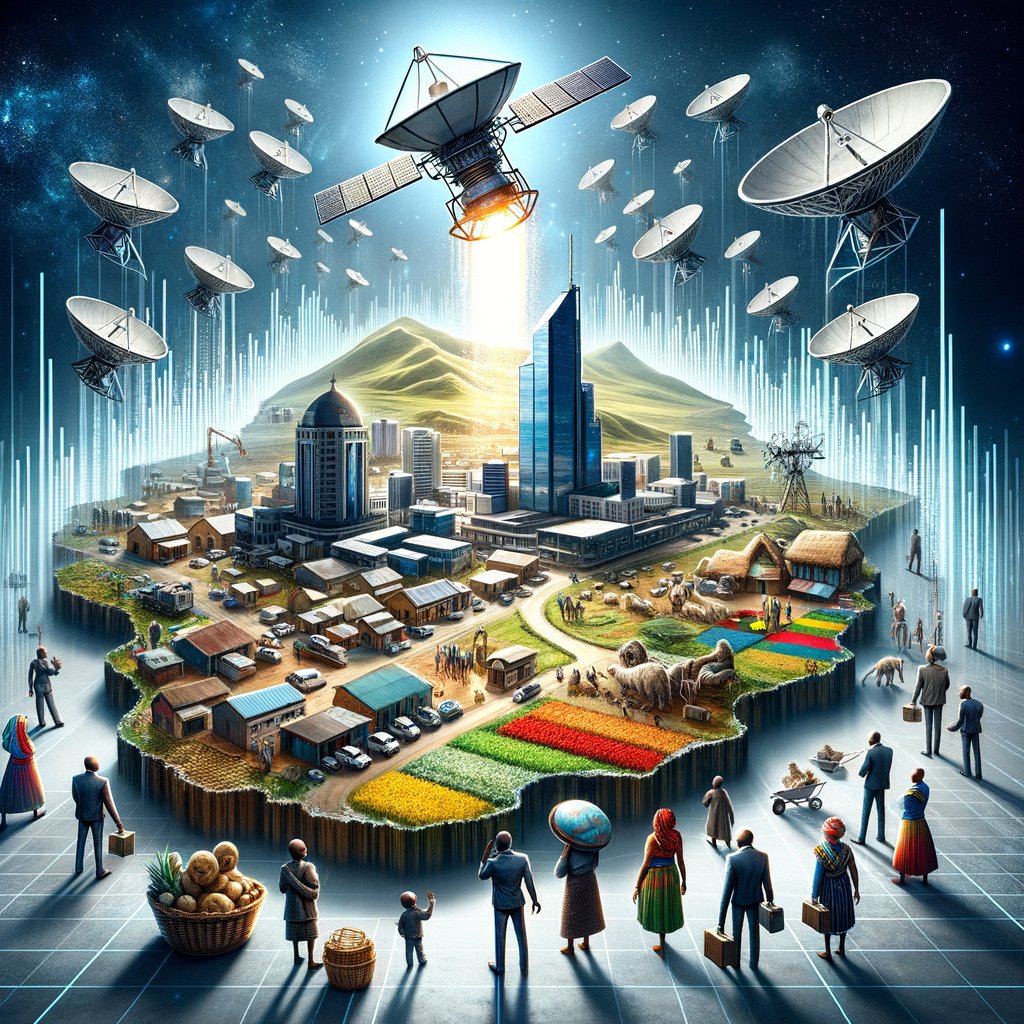Image created by AI
Elon Musk's Starlink Eyes Business Opportunities in Lesotho Amid US Aid Cuts
Despite recent remarks by US President Donald Trump describing Lesotho as a country "nobody has ever heard of" and the subsequent cutting of US aid, international interest in the small African nation remains robust. This interest is notably evidenced by Elon Musk's ambitious move to introduce Starlink, his satellite internet venture, to Lesotho, signifying potential economic and infrastructural development prospects.
Lesotho’s Communications Authority is presently considering a proposal from Starlink Lesotho Pty Ltd, a subsidiary of SpaceX, to operate within the region. The proposal, submitted in January 2025 by Micaela Pawlak, highlights Starlink's capabilities to offer high-speed broadband services leveraging its extensive satellite network, which currently encompasses over 7,000 satellites globally.
Simultaneously, the American hotel conglomerate Marriott is constructing its inaugural hotel in Maseru, Lesotho's capital. These developments reflect sustained interest from US firms in the potential of Lesotho's market.
Such interest is juxtaposed with President Trump’s recent announcement during a joint session of Congress where he emphasized the cessation of what he termed the "flagrant wasting of taxpayers’ dollars" on foreign aid, citing specifically the $8 million aimed at promoting LGBTQI+ rights in Lesotho. This decision has had immediate ramifications, with reports of 1,500 healthcare workers being sent home following the suspension of US aid.
Furthermore, the economic landscape in Lesotho has been shaped by other US-based investments such as the significant stakes held by the family capital fund, One Thousand & One Voices, in Lesotho’s agribusiness sector. Though the fund sold its share in a local trout producer last year, it continues to maintain other investments within the country.
Moreover, leveraging the African Growth and Opportunity Act (AGOA), Lesotho has cultivated a niche as a leading exporter of garments to the U.S, boasting clients like Foot Locker and Walmart. Such engagements highlight the multifaceted economic interactions that extend beyond governmental aid, showcasing a complex tapestry of dependence, resilience, and proactive economic diplomacy.
Lesotho’s diplomatic circles, led by Minister of Foreign Affairs Lejone Mpotjoane, have opted for a measured response to the U.S. aid cuts and Trump’s disparaging comments. Emphasizing the finality and legality of the aid conditions, Mpotjoane expressed a broader reluctance to engage in reactive disputes, perhaps hinting at a strategic approach to navigate what he perceives as a volatile international political climate under Trump.
As Lesotho navigates these multifaceted external pressures, the narrative of a small, oft-overlooked nation carving out a space for itself on the global stage becomes increasingly pertinent. With entities like Starlink poised to enter the market, Lesotho could redefine itself as a connected, resilient player in the international arena, notwithstanding the challenges posed by global politics.










